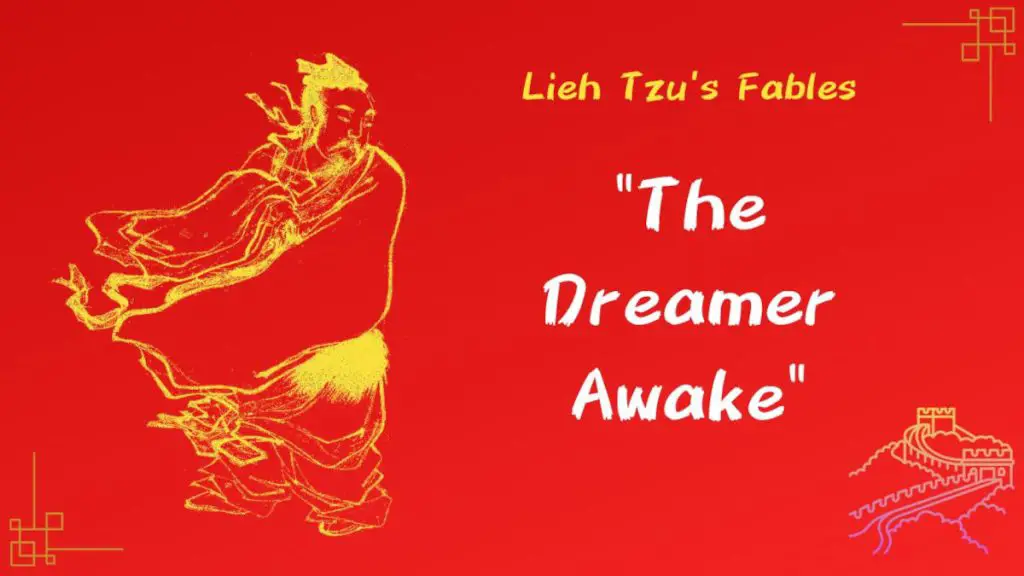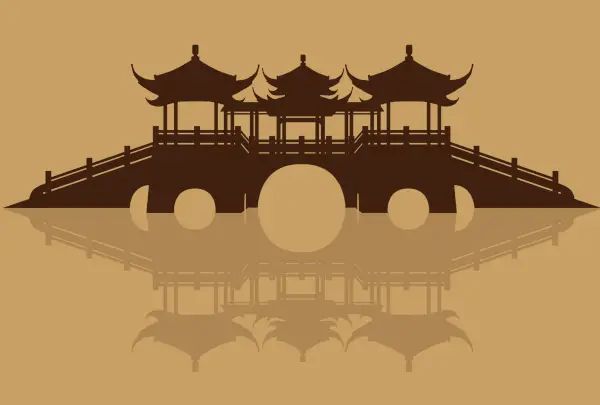
In the beautiful world of Chinese philosophy, Lieh Tzŭ, a wise student of Lao Tzu, tells a story that goes beyond space and time. This story is based on ancient wisdom and takes us to a distant land where dreams and reality blend and the lines between being awake and asleep are explored. Explore the world of Yin Ta-chih, a rich man, and his elderly servant as they walk the fine line between day and night, dreams and awareness.
This is another Lieh Tzŭ narration from Frederic Henry Balfour’s book “Leaves From My Chinese Scrapbook.” There’s a link at the end of this article. Let’s get started!
The Fable of “The Dreamer Awake”
The philosopher Lieh-tzŭ stated, “The divine men of old never thought when they were awake, and never dreamed when they were asleep.”
In a part of the world far to the west, there is a state whose borders touch on I don’t know where. The people who live there mostly sleep; they only wake up once every fifty days because they think that their dreams are real life and the things they see when they’re awake don’t exist.
During the Chou era, there was a rich man named Yin Ta-chih who kept his servants constantly at work all day and night, never giving them a break. Among them was an elderly man who had drained all of his energy and was now completely exhausted. However, his master just had him work even harder, causing him to sigh and pant throughout the day as he completed everything he had to do and fell asleep as soundly as a log when night arrived.
Afterward, his mental balance was shattered, and he began to dream every night that he was the ruler of a state, high above the heads of the people, and in control of all the affairs of his realm. He would roam around and enjoy himself amidst palaces and temples, giving no limitations to all of his passions and desires, and would experience an unparalleled level of enjoyment.

When he was awake, he was just a hardworking servant, and others would feel sorry for him and offer their sympathies for his difficult life. However, the old man would respond, “A man lives under two distinct conditions: day and night. By day, I am a slave, and I am unhappy; by night, I am a king, and I am pleased beyond all compare. So, what’s the point of complaining about my lot?”
His master, Mr. Yin, was careful and concerned about a lot of things, and the running of his prosperous establishment made him anxious all the time. When night came, he too fell asleep, tired and exhausted. Every night, he dreamed that he was a slave, an overworked runner who was always on his feet and had to do everything you could think of. He was yelled at, scolded, and hit with a stick, and he was put through every suffering you can think of. The miserable man would cry and whine through the night, and he wouldn’t stop until daylight.
He eventually became ill and sought advice from a friend. “You have more wealth than you could ever desire, and you are in a position of sufficient splendor in life; you are far ahead of your neighbors.” said his friend. “Although you dream that you’re a slave! This, therefore, is nothing more than payback; it is a fair distribution of the good and bad that each and every man must experience in life; it is a common fate. Do you wish to have a nice waking and sleeping experience? No, no, this is above what you are entitled to expect.”
After giving his friend’s advice some attention, Mr. Yin treated his servants kinder and made their work easier. In the meantime, he avoided worrying excessively about his own matters and soon felt considerably better from his condition.
Do you enjoy Chinese fables? Click here for more – Opens in new tab.
End Words
The story softly nudges us to evaluate the nature of our complaints and the viewpoints we adopt via the experiences of Yin Ta-chih and his servant. The narrative emphasizes the fleeting nature of perception and the volatile nature of reality as the dreamer navigates the ever-shifting world of his subconscious.
Both Yin and his servant find peace in adopting a more compassionate attitude, showing us that the harmony of our waking and dreaming states resides in how we see and treat others. Perhaps compassion and understanding can change our reality in the dance of day and night, making our dreams more captivating and our waking hours more meaningful.
Related reading: Finding Personal Growth Lessons In Ancient Chinese Tales – Opens in new tab
You can click and download Henry Balfour’s book “Leaves From My Chinese Scrapbook” (1887) or visit our free Chinese culture library to find it among many more books.
Stay in Touch
 Join our newsletter by using the forms on this website or click here!
Join our newsletter by using the forms on this website or click here! Follow us on Google News
Follow us on Google News Follow us on Facebook
Follow us on Facebook




